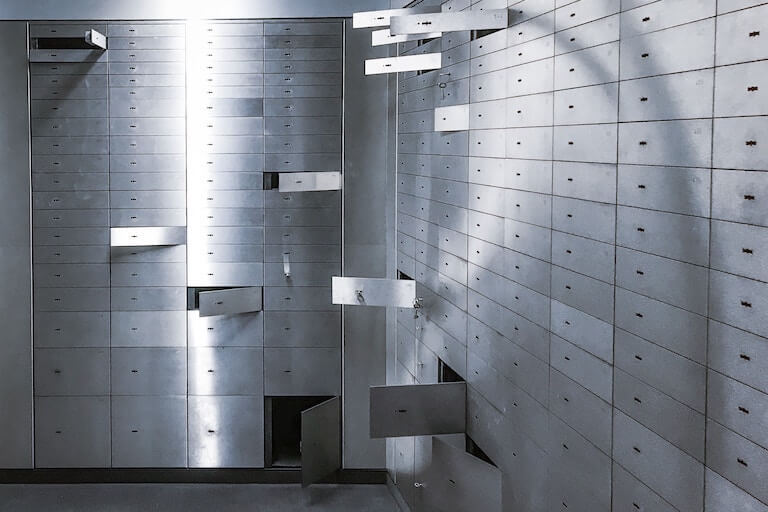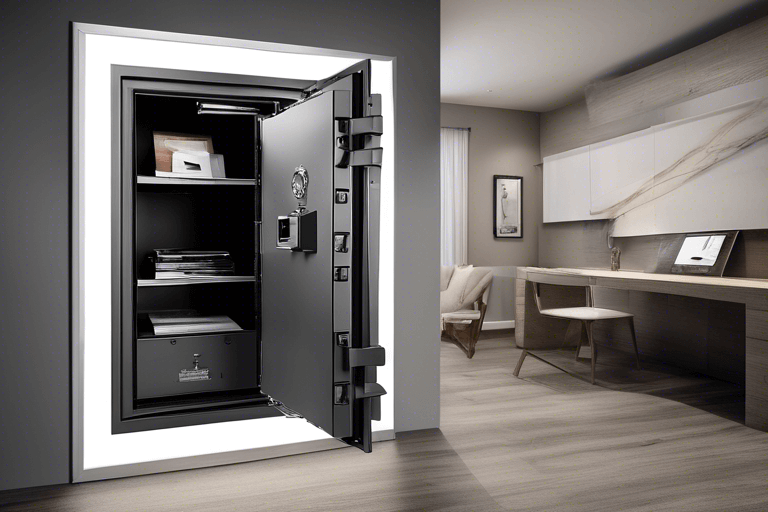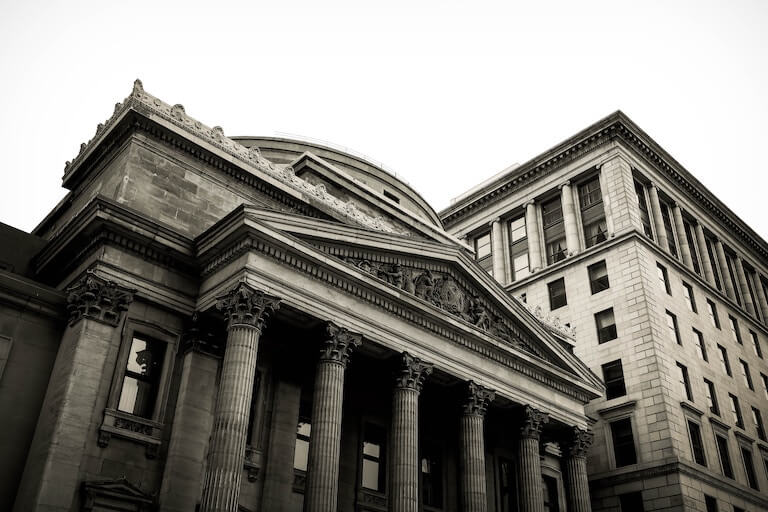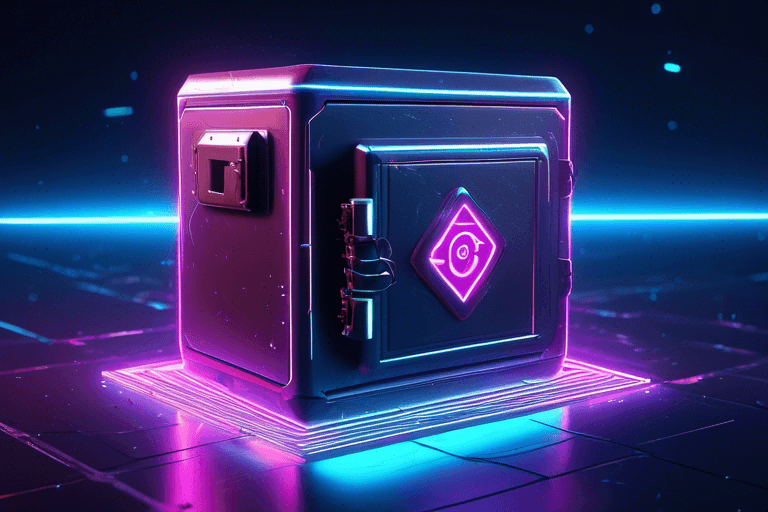
The Unspoken Truth: 4 Disadvantages of Safe Deposit Boxes
It's a common sight in any bank across the globe - a secured room filled with rows of small, locked boxes.
These are known as safe deposit boxes, an age-old institution providing a secure place for individuals to store their valuable possessions.
From family heirlooms to important documents, safe deposit boxes offer a degree of protection and peace of mind that might be tough to achieve at home.
Despite their ubiquitous presence, many people do not fully understand what safe deposit boxes are or how they function.
Simply put, a safe deposit box is a secure container, typically held within a larger safe or bank vault. Customers who rent these boxes can use them to store important or valuable items, including legal documents, precious metals, currency, and more.
The allure of such boxes is undeniable. After all, who wouldn't want their most precious belongings stored securely under the watchful eyes of a bank?
However, as with any financial service, there are pros and cons to using safe deposit boxes.
The Importance and Use of Bank Safe Deposit Boxes
Safe deposit boxes have long been a staple of personal financial management. Their primary use is to provide a secure storage space for important and valuable items.
People use safe deposit boxes to store everything from birth certificates and passports to jewelry and rare collectibles.
Businesses also find value in safe deposit boxes, using them to secure important legal documents, back-up hard drives, or even physical stock.
Another crucial aspect of safe deposit boxes is their role in estate planning. Many individuals use these boxes to store wills, insurance policies, and other important documents related to their estate. This ensures that these items are safely stored away and easily accessible to the individual’s executor upon their passing.
However, the benefits of a safe deposit box go beyond just security. They also provide a psychological benefit. Knowing that one's most important items are stored securely can provide a significant peace of mind.
Yet, despite these advantages, safe deposit boxes are not without their drawbacks.
The Dark Side: Unveiling the Safe Deposit Box Disadvantages
While safe deposit boxes offer numerous benefits, they come with notable disadvantages that often remain unspoken. To make informed decisions, individuals must have a balanced view of both the safe deposit box disadvantages as well as the advantages.
Limited Access: A Primary Safe Deposit Box Disadvantage
What is a disadvantage of using a safe deposit box?
One of the major drawbacks of safe deposit boxes is their limited accessibility. Banks usually operate during business hours, meaning that access to these boxes is restricted to these times. This can be particularly problematic if you need access to your box in an emergency situation or during non-business hours.
In addition, there may be limits on who can access your safe deposit box. Most banks require a key, and some even require a dual key system where the bank has to use their key in addition to yours. This means that if you lose your key or if the bank's key is unavailable, you may not be able to access your box.
The Risk of Bank Failures
While it may seem like a worst-case scenario, the risk of bank failures is a real concern when it comes to safe deposit boxes.
When a bank fails, it can be taken over by a government agency, usually without any notice to customers. This can lead to an immediate freeze on access to safe deposit boxes, potentially leaving box holders unable to retrieve their valuables.
This risk is not just theoretical. There have been instances where customers have been unable to access their safe deposit boxes for weeks, months, or even permanently due to bank failures.
This is one of the most significant safe deposit box disadvantages, as it can leave customers in a difficult position without access to their most important belongings.
While the risk of bank failures is relatively low, it is a risk that must be considered when deciding to rent a safe deposit box.
The Potential for Damage or Loss
Despite the high level of security offered by banks, safe deposit boxes are not immune to damage or loss.
Natural disasters such as floods, fires, and earthquakes can cause damage to the bank and its contents, including the safe deposit boxes.
In addition, while rare, there have been instances of theft from safe deposit boxes. While banks take extensive security measures, they are not impervious to crime.
Privacy Concerns
Another often overlooked disadvantage of safe deposit boxes involves privacy concerns. While banks are legally required to protect the privacy of their customers, the contents of your safe deposit box may not be as private as you think.
In certain situations, such as during a criminal investigation or following a court order, the bank may be required to open your safe deposit box.
This can lead to potential privacy issues, as you may not want certain individuals or authorities having access to your personal belongings or documents.
Comparing Safe Deposit Boxes and Home Safes
When discussing safe deposit box disadvantages, it's important to consider alternatives, such as home safes or even home safe deposit boxes.
A home safe can offer many of the same benefits as a bank safe deposit box, such as security and peace of mind. Yet, it also offers additional advantages like more convenient access and greater privacy.
However, a home safe isn't without its drawbacks.
While it can offer more convenient access, it also carries the risk of theft or damage from fires or natural disasters.
Also, a home safe may not offer the same level of security as a bank safe deposit box, depending on its quality and installation.
Alternatives to Safe Deposit Boxes
Apart from home safes, there are other alternatives to consider. These include safekeeping services offered by non-bank companies, digital storage solutions for documents, and safety deposit boxes offered by private vault companies.
Each of these alternatives comes with its own set of advantages and disadvantages. Therefore, it's important to carefully consider your specific needs and situation before deciding on the best option.
Conclusion: Is a Home Safe Deposit Box Better?
So, is a home safe deposit box a better choice considering the bank safe deposit box disadvantages?
The answer largely depends on individual needs and circumstances.
For some, the convenience and privacy of a home safe may outweigh the potential risks. For others, the security of a bank safe deposit box, despite its drawbacks, might be the preferred option.
In conclusion, while safe deposit boxes offer a secure way to store valuable items, they are not without their disadvantages.
Understanding these drawbacks is crucial to making an informed decision about where to store your most valuable possessions.



